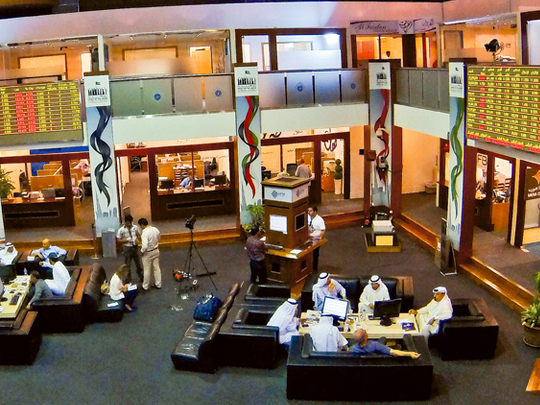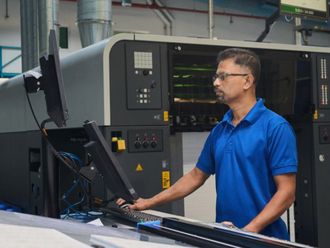
Dubai: The upgrade of the UAE and Qatar indexes by the Standard and Poor’s and MSCI will help them to see greater long-term capital inflows from foreign investors, leading to more stability in equity markets, market participants said on Thursday.
Following moves from the competitor the MSCI, the Standard and Poor’s will upgrade the UAE and Qatar to emerging markets from frontier indexes from September 22. S&P said Qatar would carry weights of 0.9 per cent of the S&P emerging markets BMI index while the UAE would have 1.0 per cent. That compares with a 24 per cent weight for China and 11.3 per cent for Brazil.
“It is positive; it will put our market on the radar of global investors and secure liquidity for our market. We are already seeing a substantial increase in daily liquidity,” Rami Sidani, head of investments in Middle East at Schroders, who manages a portfolio of $2 billion (Dh7.3 billion), told Gulf News.
“The upgradation will play an important role in connecting the international money into local economy, we have seen large investments both passive and active in the market,” said Sidani, adding the market has already witnessed an inflow of $2 billion of passive money.
S&P’s announcement followed similar moves by the competitor MSCI in end-May. Global markets index provider MSCI reclassified the MSCI UAE and MSCI Qatar indexes to an emerging market from frontier markets.
The nine companies in the UAE index are Abu Dhabi Commercial Bank, Aldar Properties, Arabtec, DP World, Dubai Financial Market, Dubai Islamic Bank, Emaar Properties, First Gulf Bank and National Bank of Abu Dhabi.
Cheaper stocks in UAE
“The UAE market is substantially cheaper compared to Qatar. Some stocks in Qatar have been overvalued after the MSCI upgrade as money got into relatively illiquid stocks, which propelled the stock prices higher,” said Jaap Meijer, Executive director at Arqaam Capital.
“We could see additional investment inflows from the S&P upgrade to Emerging markets, although its significance should be less as compared to the MSCI reclassification,“ said Meijer.
Masraf Al Rayan listed on the Qatar exchange is considered overvalued, while the shares of NBAD have corrected sufficiently, he said. Masraf Al Rayan has the third-biggest weighting on the index. The Dubai Financial Market has almost doubled in the past one year, while Abu Dhabi index has gained more than 43.68 per cent.
Stable flows
“We would see more of foreign institutional investors on local exchanges [due to the upgrade] and that could keep the capital flows more stable as FII’s tend to be more long-term compared to retail investors, which are short-term players. As a result we would expect to see more of stability on share prices and level of volatility. The FII’s will continue to come to the market, but they need to see more of risk mitigation on corporate governance standards,” Steve Drake, partner at Price Waterhouse Coopers and head of capital markets said.
“FII’s would expect to see high standards of corporate governance, so we would expect to see corporate governance standards continuing to improve overtime… with increase in confidence, FII may invest in new entrants,” said Drake.
Emaar Properties, the developer of the world’s tallest tower, started selling at least 15 per cent of shares in Emaar Malls Group from September 14, and plans to list them on Dubai Financial Market on October 2. The share sale is touted to be one of the biggest after the credit crisis of 2008, when many companies were forced to restructure debts and stall projects.
Earlier in the week, Emaar Properties said it’s qualified institutional investor portion was fully subscribed, indicating robust appetite.











